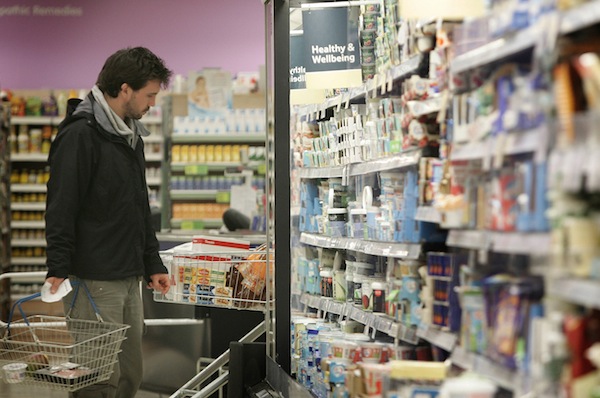David Cameron was right; the good news has kept on coming. This morning’s first estimate from the ONS puts GDP growth in the third quarter at 1.0 per cent. Cue much justified squabbling over what the ‘real’ number is. A significant portion of this growth will be a one-off, post-Jubilympics bounce-back, suggesting slower underlying growth. As Jonathan pointed out yesterday, ONS first estimates have a margin of error of 0.7 percentage points, meaning that even with these factors built in, the real figure could lie between 0.3 and 1.7 per cent. Gaps of this magnitude are no small matter.
But behind these arguments about the number itself lies a different and in many ways much more politically important question: what will a return to growth actually feel like? The answer depends on a lot of things: what frame of reference do people use when judging how well off they feel? Do people feel mired in debt? Most simply, though, it depends on how growth feeds through into people’s incomes. In fact, once you control for the impact of wars, disposable income growth predicts elections remarkably well.
So here’s the rub: GDP growth isn’t actually all that good a predictor of income growth for ordinary working households. The chart below plots growth in GDP per capita against income growth in low to middle income households for a range of countries over the past 30 years. Of course, countries that grow faster deliver faster income growth. But the link is surprisingly weak. Some countries grow strongly and do poorly for incomes while others grow slowly and do relatively well. This fact becomes even more obvious when you zoom in to sub periods within countries; the thing that divides prosperous eras from gloomy ones isn’t headline GDP on its own, but headline GDP plus other conditions.
Figure 1: GDP per capita and income growth for low to middle income households, US$ PPP

Source: Luxembourg Income Study, calculations by Professor Lane Kenworthy
So will those conditions be in place over the next few years? Next week sees the publication the final report of the Commission on Living Standards, which has examined this question over the last 18 months. Its research suggests at least three good reasons to worry that the answer might be no.
First, growth isn’t trickling down to the bottom half of the workforce in the way that it used to. Only 12 pence of every pound of GDP growth now reaches wages in the bottom half, meaning it takes strong growth before the benefits are tangible.
Second, unemployment is holding down wages more than it used to, meaning that pay might not pick up again strongly until unemployment returns to much lower levels. This helps to explain why wage growth was so weak in the years of strong GDP growth before 2008, long before the crisis struck. It also helps to explain why there have been such unusually deep falls in wages since 2008 – and, as a trade-off, comparatively strong employment.
Third, even when employees do see their overall compensation start to rise again, other costs will squeeze the amount leftover for pay. Employer contributions to pensions look likely to rise faster than they did in earlier expansions, partly to fill pension fund deficits and partly as we adjust to a society with a larger retired population and relatively fewer working-age people. We’re all having to put more aside.
Welcome to growth in the 21st century – not as nice as you might think. The Chancellor should take heed. As many politicians have learned over the years, the only thing more annoying than a bad economy is an economy that politicians say is good but that feels bad.
James Plunkett leads the Commission on Living Standards at the Resolution Foundation.






Comments